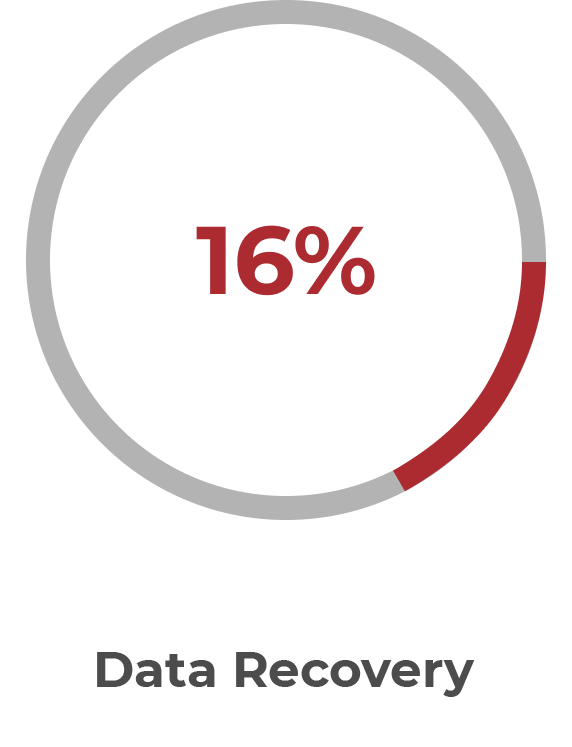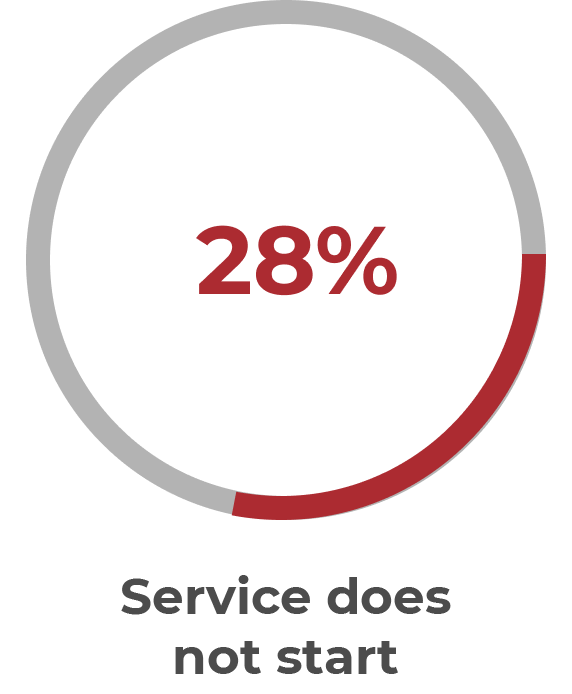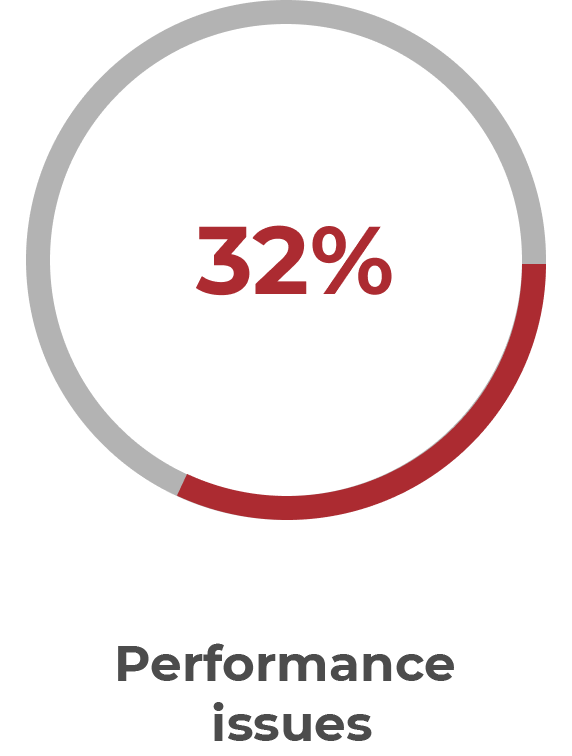Remotely. A Senior DBA connects to your server to perform the recovery of your RDBMS. Access is made via the internet, using one of the following programs: SSH, TS/RDP, or TeamViewer, with or without a VPN.
On the button to the right, select the number of hours you wish to hire. Payment must be made via PayPal or credit card (all major cards accepted). Once we receive payment confirmation, a Senior DBA will be assigned and will contact you to perform the remote support.
Choose the number of hours you wish to hire:
1 hour – U$D 1,500.00
2 hours – U$D 2,500.00
3 hours – U$D 3,000.00
4 hours – U$D 3,500.00
5 hours – U$D 3,750.00
8 hours – U$D 4,000.00
As this is an emergency service, we understand that SLA is very important. The maximum response time is:
Weekdays from 9:00 AM to 6:00 PM: 30 minutes
Weekdays from 6:00 PM to 9:00 AM, Saturdays, Sundays, and holidays: 2 hours
Within the contracted hours, any service related to the role of a Senior DBA, such as: restoring an RDBMS service (e.g., server won't start/boot), emergency performance tuning, troubleshooting instability and resilience, data recovery (restore) at multiple levels, L2 and L3 support, data migration, replication, mentoring, etc.

Analyzing the more than 596 cases we have handled in recent years, which led to total database downtime, we can categorize the main incidents into the following categories:




In the event of a failure in your database, high-criticality and/or complex situations, contact our rapid response team. A downed database server can represent thousands of reais wasted and/or lost, or even a risk to your institutional image. In these circumstances, a precise and effective action must be taken to minimize losses, whether financial or intangible. This is not a scenario for experimentation, “guesswork,” “Googling,” or relying on blogs.
Emergency support is a premium service for immediate assistance, where we mobilize all our resources and efforts for a prompt response and solution. It is primarily applied in cases where the database service is completely unavailable, there is significant instability, or performance is far below the SLA. In contrast, traditional consulting involves scheduled support, which depends on the team and timeline.

It is a comprehensive analysis of the design of your database (or a specific set of tables). It is a delicate task that will assess best practices in database modeling. It involves determining the best choice of data types that will allow for optimal column performance. Normalization and/or denormalization of tables. Indexing strategy. Selection and suitability of storage engines.

Replication is a native and powerful utility in MySQL, and it’s simple to implement. However, this simplicity often leads many DBAs to overlook certain details that can result in implementation errors. Our work here can take two approaches: implementing replication or reviewing the entire existing architecture. We can create highly scalable and redundant environments that offer benefits such as contingency, online backup, performance, and robustness, while also adhering to best practices and usage standards.

You provide us with a set of queries to be validated or optimized, either before going into production or those already known to be problematic. We can also scan all queries executed on your server and identify those that consume more resources than necessary. In short, regardless of how the queries are provided, the work here involves applying best practices in writing SQL statements, always aiming for: the best possible performance, maximum concurrency, and the absence of locks.
Among the techniques used, we can highlight: the application of MySQL-specific hints, use of indexes (B-tree, B+tree, R-tree, hash, full-text), implementation and optimization of caches and buffers, optimizer configuration, query pre-compilation, and the use of events and summarized tables.

Horizontal table partitioning can be an excellent strategy for “breaking up” large tables into multiple smaller physical files. The idea behind this concept is to create “sub-tables” that are transparent to the application but recognized by the RDBMS. The goal is to achieve higher performance and resolve other operating system-related issues.
However, it can become a major headache if the partitioning concept implemented by MySQL is not fully understood. In this consulting service, we implement the best partitioning techniques, using appropriate strategies to maximize the benefits of MySQL pruning, thereby improving query performance. This includes partition maintenance strategies, choosing the best partitioning factor, indexing, storage engine selection, and more.

It is increasingly common for business rules and/or complex routines/functions to be implemented within the database in the form of procedures, functions, triggers, and events/jobs. It’s a common belief that routines that ran well in another RDBMS will perform just as well in MySQL and therefore do not require review—but that’s not necessarily the case.
We can create stored routines based on a requirements analysis, improve existing ones, or even rewrite them entirely.

MySQL allows you to create your own functions in C++. These functions can be integrated into the MySQL core and used by your applications as if they were native RDBMS functions. We can help you develop these functions, which can result in greater power and flexibility for your applications.

Do you understand the ACID concept? Are your applications truly transactional? What is the most appropriate isolation level for your transaction? What is the ideal wait time for a locked row (record)? How can you identify rows locked by other sessions? Is the storage engine you’re using the best option for transactions? How can you take full advantage of MySQL’s transactional features?
Do you need a multimodal, simultaneous transaction across different databases—for example, starting the same transaction in both Oracle and MySQL? We can review your source code and provide all the necessary knowledge to ensure your applications work with transactions in a safe and effective manner.
These are fine-tuning adjustments made exclusively to the mysqld server configuration and the operating system. MySQL/MariaDB has an intricate web of configuration variables. It requires extensive theoretical and practical experience for proper tuning. By analyzing your server's load, the most frequent types of operations, among other factors, we can determine the best adjustments for each variable. It is important to emphasize that there is no "magic" configuration; often, it is necessary to go beyond adjusting variables to achieve a truly high-performance environment.
Design of database environments with high availability, scalability, load balancing, geo-replication, and hybrid configurations between on-premise and cloud. Definition of all hardware and software components. Creation of Data Warehouse environments. Integration of SQL - NoSQL environments. ETL (Extract, Transform, Load).
Or 'jump start' is nothing more than understanding your RDBMS needs, and from there, sizing the most suitable hardware and operating system. The MySQL server will be chosen from the various available flavors and platforms, and, if necessary, compiled with a series of parameters that best meet your needs. A general-spectrum tuning is executed as a bonus. In this consulting, other MySQL distributions are considered that may bring more appropriate features for the type of operation your application will require from its RDBMS.
High Availability
High availability is a legitimate need for mission-critical applications. And, in our understanding, high availability is not only about being up for as long as possible, but also includes a high volume of data delivery. Does your database require high levels of uptime with an SLA of 99.99% to 99.9999%? Low impact on the application during preventive, corrective maintenance, and backups? High data delivery volume? Whatever your high availability needs are, we have the solution:
Active-Active Cluster
Active-Passive Cluster
MySQL Cluster
DRDB
Memcached
Continuent/Tungsten
Multi-Master Replication
Generically, it is a working methodology in which the service recipient (client) hires the service provider (vendor) to perform specific and defined repair services. Our B&F service is qualified to handle any type of database incident, from L1 to L2 (Oracle, SQL Server, HBase, MongoDB, etc.), up to L3 (MySQL). The main demands listed in this service category are: Database service not starting and/or not coming up, file and/or data corruption, data recovery, instability, security issues, and more.

Have questions about our services or need technical assistance?
Fill out the form below, and our team will get in touch with you as soon as possible.
Líderes em soluções de banco de dados, comprometidos com a inovação, segurança e desempenho para impulsionar o seu negócio.
Somos especialistas em otimizar e proteger bancos de dados. Evoluímos para oferecer as soluções mais inovadoras em consultoria, monitoramento e sustentação de sistemas de dados. Nosso compromisso é garantir que sua infraestrutura tecnológica proporcione vantagens estratégicas.
Mergulhe na nossa jornada, conheça os marcos que definiram nosso caminho e descubra como nos tornamos líderes em tecnologia da informação.
Nossos especialistas compartilham estratégias e práticas recomendadas para otimizar a gestão dos seus dados, garantindo segurança, eficiência e inovação.
Tem dúvidas sobre nossos serviços? Confira nossa seção de Perguntas Frequentes para obter respostas detalhadas sobre sustentação, monitoramento e consultoria de banco de dados.
Nossos clientes destacam nossa dedicação, expertise e a qualidade das soluções oferecidas, reforçando nosso compromisso com a excelência e a inovação.